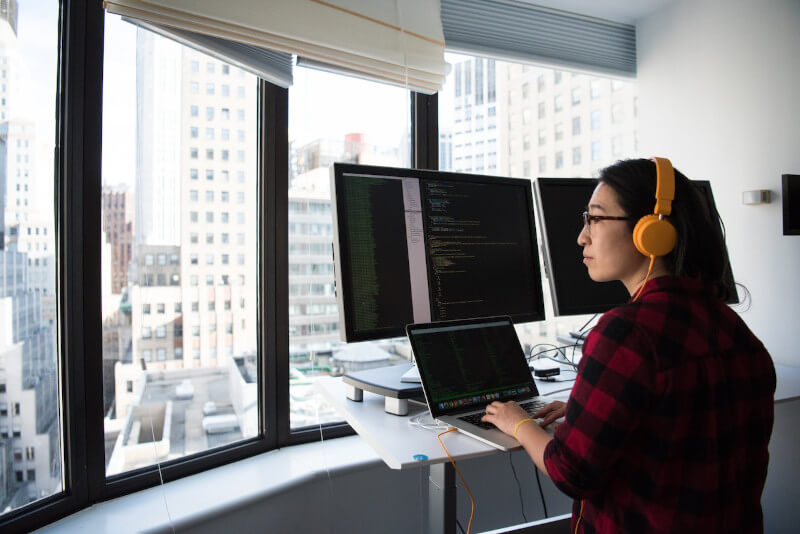Search engine optimisation is a rapidly changing field where few can stay current. Global trends in recent years have influenced how companies and SEO experts approach SEO. With developments like neural matching and an ever-increasing focus on the user experience, the SEO environment is more varied than ever before.
The Current Worldwide SEO Craze
User experience (UX) has moved to the forefront of web development. Since Google began using Core Web Vitals as a ranking signal, site speed, interactivity, and aesthetic stability have taken on greater importance. This means that companies need to make their websites not only content-rich but also easy to navigate and quick to load.
Video Material: Video content is becoming increasingly powerful as sites like YouTube evolve into full-fledged search engines in their own right. Traffic, visitor retention, and authority can all be increased with the help of educational, entertaining, and well-optimized videos.
Voice-Activated Search: Smart speakers and voice assistants are becoming increasingly popular, and this has drastically altered the way people ask questions. Now that most people talk rather than type their searches into a search engine, conversational and long-tail keywords are more important than ever.
Social Media
Search engine optimisation (SEO) and social media are two of the most frequently mentioned aspects of life in the digital age. For a long time, companies saw them as unrelated entities, each with its own sphere of influence and approach to success. But now it’s a different era. As the overlap between social media and search engine optimisation (SEO) continues to expand, we must ask: how significant is social media SEO?
Connected Networks
The precise role that social signals (such as likes, shares, and retweets) play in influencing search engine rankings is still a bit of a black box for major players like Google. Nonetheless, there is proof that a link exists. If your content is shared widely on social media, you may see an increase in backlinks and website traffic, two crucial SEO metrics. Even if the tweet or post itself doesn’t improve SEO, the resulting ripple effect could.
Improving the Exposure of Content
Finding new content used to rely heavily on serps before social media sites took off like Twitter and Instagram. In come hash tags, social media, and internet fads. The proliferation of information is largely due to the rise of social media. In just a few short hours, your work can be seen by hundreds, if not millions, thanks to a strategically placed post. Your site’s authority with search engines will rise if more people find it thanks to this exposure.
Construction of Real Backlinks
Seo relies heavily on backlinks. Having a reputable website link back to yours is like getting a digital stamp of approval from the search engines, saying, “This content is valuable.” The role of social media in this is that of a catalyst. Sharing high-quality, interesting information on social media can attract the attention of bloggers, journalists, and other thought leaders in your field, which can then result in organic backlinks.
Increasing Participation
Engaging with others is more important than simply broadcasting on social media. Users who are interested in what you have to say are more likely to comment on it, share it, and otherwise participate with the content you provide. Social media and professional networking sites like Facebook and LinkedIn facilitate lively debate. Conversations are sparked by interesting content, and they can shed light on user intent, preferences, or pain issues, all of which can be used to improve your SEO tactics.
Social Media and Search Engine Optimisation

With Instagram’s geotagging feature, businesses can focus on a specific area. This is a boon for companies who focus on serving a local customer. By appealing to a specific geographic audience, localised content can boost organic search engine rankings.
The Importance of Social Media Pages for Businesses
While your website serves as the nerve centre of your online presence, your social media profiles are the arms that extend out to different demographics. Many consumers’ introduction to a business is through its social media presence. It has not been lost on the search engines. It’s not uncommon for a company’s Twitter or Facebook page to appear higher in search results than the main website. It is critical for the brand’s exposure that these profiles are fully optimised, active, and interesting.
Future-Ready Preparation
As users’ habits change, so do search engines. There is a blurring of social media and search as platforms like Pinterest add search engine-like functionality. Companies must be ready to operate in a world where search engine optimisation (SEO) involves not only optimising for Google but for a wide variety of search and discovery platforms.
There are many facets to the complex web that connects social media with search engine optimisation. It’s not so much that one influences the other as it is that you realise they’re two sides of the same coin. Brands that successfully combine the two will thrive in the ever-changing digital world.
Synaptic Plasticity and Artificial Intelligence: With the advent of BERT (Bidirectional Encoder Representations from Transformers), Google’s AI efforts have reworked the way keywords are understood. Search results are less concerned with precise matches than with overall relevance. The future of content creation is not keyword stuffing but rather topical depth and significance.
SEO and Augmented and Virtual Reality (AR/VR): With widespread adoption of AR and VR, these technologies will have a greater impact on search engine optimisation. The next big thing will be immersive experiences, with companies developing augmented reality (AR) content for product demonstrations and virtual reality (VR) content for tours.
Localised material: Localised queries are expected to expand along with the adoption of mobile devices. Strategies for local search engine optimisation will have to shift their attention to hyper-local content that is tailored to the nearby area rather than a more generalised region.
Insights from the Experts
Organic search pioneer Jamie Roberts has said, “The role of AI in SEO is undeniable.” To be sure, AI is only as good as the information it is taught. So, human ingenuity, wisdom, and compassion are still crucial.
Leonardo Mitchell, an SEO expert with years of expertise, stressed the significance of the user’s perspective. We’ve noticed a trend towards measuring what matters most to users. It will be the user who determines the future. No amount of tweaking will save a website that isn’t useful.
An advocate of holistic SEO, Samantha White, has said, “Diversification is the key. Companies ought to be everywhere. Google is no longer the only player. Improve your site’s performance on search engines like Bing, DuckDuckGo, and new ones.
“The mobile-first approach isn’t just a trend; it’s a staple,” Ethan Grey, a leader in mobile SEO, has said. However, with the proliferation of wearable technology, we may soon be discussing optimisation for smartwatches and augmented reality glasses.
Gaining access to the knowledge of these individuals is illuminating. What’s the general agreement? SEO now also requires knowledge of human behaviour, intent, and the ever-changing nature of available technology.
There is no way to know for sure what the future holds for SEO. But one thing is certain: organisations that are nimble, that put a premium on learning, and that put their customers first will always thrive.

